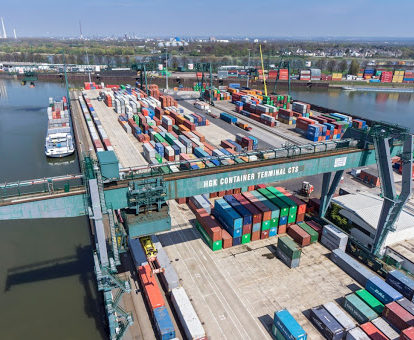The COVID-19 pandemic is likely to lead to increased state involvement in the transport industry; for airlines it has already begun, writes Peter de Langen.
Such state involvement is always complicated, as demonstrated by the Ryanair complaint that governments bailing out flag carriers amounts to state aid. Against this background is the news that the regional state-owned inland port company of Cologne will purchase the main European activities of Imperial logistics (the sale price is a little over €175 million, the profit of the activities over the past year was almost €20 million) is extra noteworthy.
The main activity involved is barge shipping. The activities were for sale for some time, the most logical buyer would have seemed an investment fund or a competitor such as Rhenus. In that light, it is worth wondering why a state-owned company would want to purchase these activities, if the current owner wants to divest and focus on logistics in Africa and other private candidates were not willing to match the price of Cologne port.
Relevant in this respect is the fact that most of Imperial’s barge fleet consists of tankers for oil, oil products and chemical products. The growth prospects of these segments are limited. Thus, there is a risk that Cologne port is purchasing a mature/declining activity that private investors are not interested in.
Therefore, in my view, the board and shareholders (i.e. the city of Cologne) need to be able to specify precisely what public interests are at stake and why these can only effectively be secured through purchasing the Imperial activities.
My unsolicited advice for the municipal council members of Cologne that still have to approve the deal is, first, pointing out that barge transport is more environmentally friendly than road /rail is nowhere near a convincing reason for purchasing the Imperial activities. Second, ask the management if they consider a scenario where they transform the activities and sell them after the transition is done. If the answer is ‘yes’, there is the red flag.
First published @ Port Strategy













